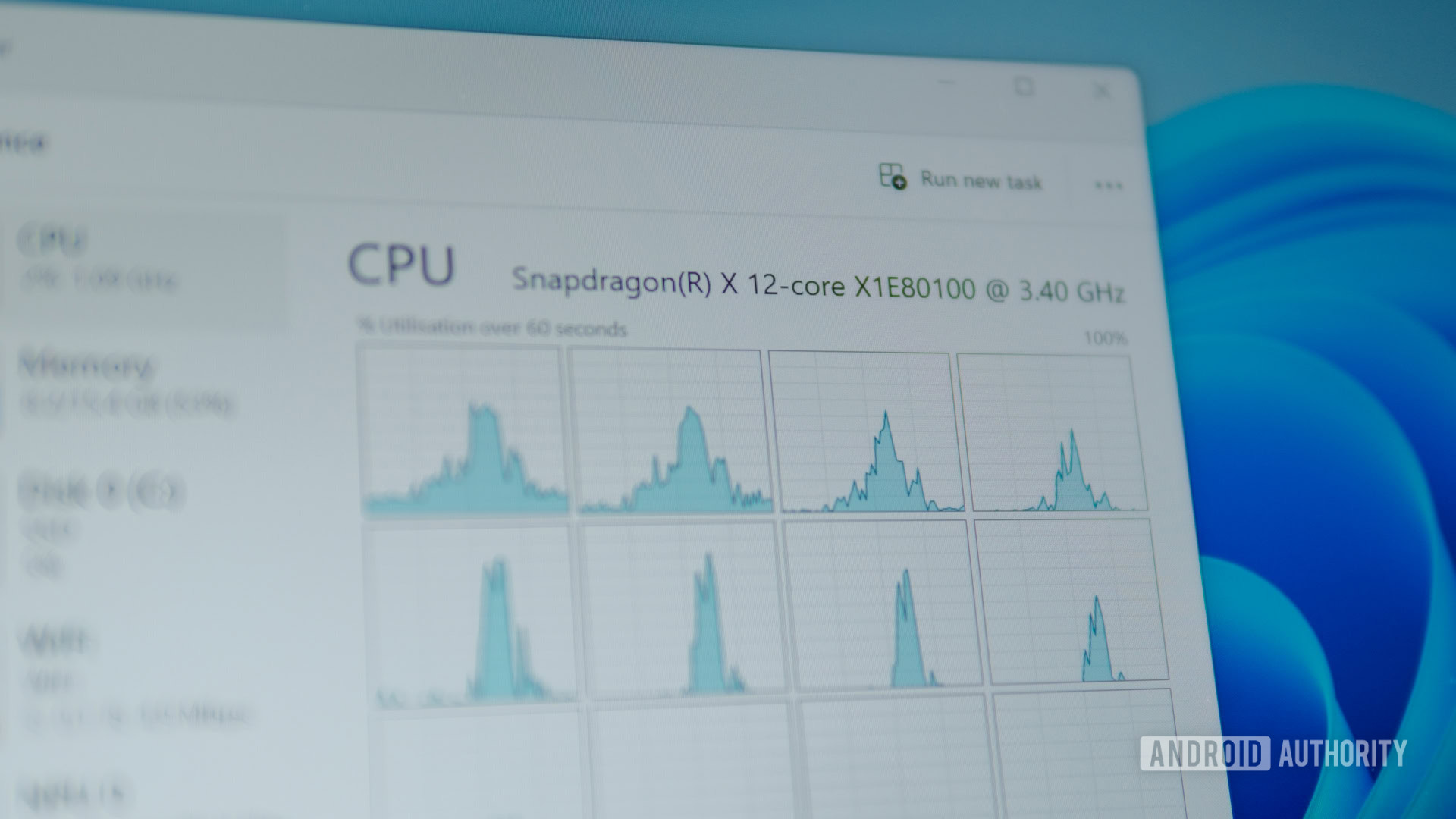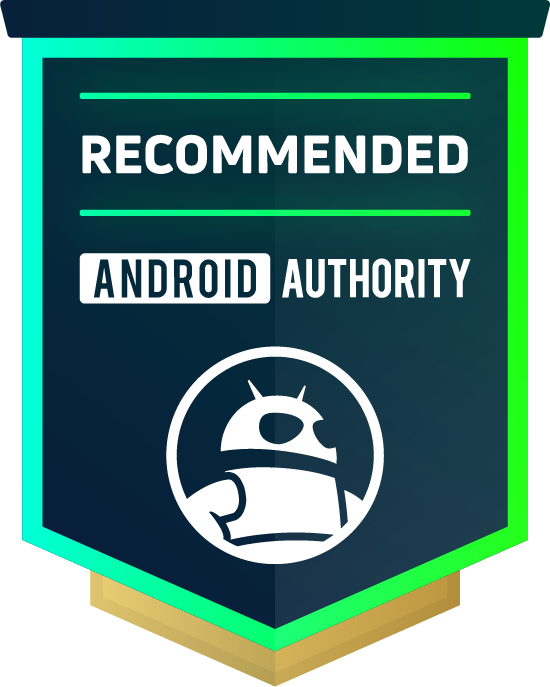Affiliate links on Android Authority may earn us a commission. Learn more.
I've spent 48 hours with a Copilot Plus PC and I'm already worried
Published onJune 23, 2024
I was very excited when my Surface Laptop pre-order arrived two days ago, as I’ve been itching to try out these Arm-based, Snapdragon X-powered, Copilot Plus PCs (or whatever you want to call them) since the chipset was first announced in late 2023. Taking the battery-friendly, AI-ready, and ultra-connected benefits of the best smartphones and pairing it with performance that rivals best-in-class laptops sounds too good to be true. Unfortunately, after just 48 hours with the new Surface Laptop, I’m starting to feel that might be accurate.
I should caveat this by stating that the office use element of the Copilot Plus PC experience is perfectly fine, great even. It’s flawlessly powering through writing this article with me, and the battery stats state that I’ve enjoyed two hours and 36 minutes of screen-on time since its last charge, and I still have 76% to go. The battery life on this thing seems pretty rock solid, so at least that’s one promise ticked off the list.
That said, several hiccups in the past 48 hours are undoubtedly pivoting my eventual review in a more negative direction. Namely, app emulation is hit-and-miss, and I don’t really see what all the AI fuss is about, given that Recall is on hiatus until later in the year.
Battery life is great for office workloads, but everything else is less convincing.
But before we get to that, let’s wrestle with this whole running Windows on Arm malarky. Yes, the battery-life benefits seem to be there (though more testing will tell), and the performance of native Arm applications is sublime if you can find them. And that’s the problem: I’m relying a whole lot on Microsoft’s Prism emulator layer to run x64 applications that aren’t yet natively built for Arm processors. Honestly, I’m surprised by how few of the apps I use on a daily basis don’t have native versions. Libre Office, Lightroom Classic, Discord, Asana, and any Steam game (of course) all rely on emulation. I knew my more niche apps from smaller developers, including Feishin and Jellyfin for media, would rely on emulation, but it’s surprising that so few big projects aren’t onboard by this stage. It’s not like Windows on Arm is new.
As for native support, I’ve used Photoshop, Slack, Spotify, Zoom, and the big three web browsers. The latter is where Microsoft gets its “90% of user minutes are running on Arm native” nonsense, but they all run great. Still, I’ve suffered a number of black screen glitches when running GPU-heavy pages in Edge with an external monitor that doesn’t appear with Firefox. Even native apps aren’t immune from issues, it seems.
Let’s be generous and say I have a 50/50 split of Arm and x64 apps installed. The problem remains that emulation performance feels so hit-and-miss. For instance, Lightroom Classic (just update it already, Adobe!) runs flawlessly when editing photos, but exporting JPEGs can bring it and other applications to their knees. On the other hand, Asana and Discord run like an egg and spoon race — stopping, starting, pausing, and loading. This is where Prism’s performance is a letdown; UI elements can temporarily freeze, sometimes system-wide, and I’ve even had music playback cut out for a split second. These issues don’t crop up very often, but when they do, you’re instantly reminded you’re not receiving the best Windows experience out there.

But that’s not the cardinal sin. No, the fact that most VPN apps don’t work because they don’t yet have native Arm versions might be an absolute deal breaker for some. I often need a VPN to check out regional website versions, and thankfully, I can still do that in my browser. However, many others have steeper requirements, including those in the enterprise space. Thankfully, VPNs are the only apps I’ve encountered that outright refuse to work.
Now, I’d cut Microsoft and developers some slack if Windows on Arm was a brand-new initiative, but Windows on Arm and Microsoft’s emulator have been around for seven freakin’ years, and we’ve had commercial products for six of them. How are we still discussing app development and emulation problems that Apple has eliminated in about half that time? It’s borderline ridiculous.
Windows has been emulating Arm for seven years, and it's still far from perfect.
OK, enough of the emulator bashing — the Snapdragon X Elite is powerful enough to brute-force its way through (most) of the minor issues. Let’s talk AI — it’s the key marketing material with these Copilot Plus PCs, after all. So what’s the Plus fuss all about? It’s a bit hard to tell. Windows Recall felt like the flagship feature, but that’s put on ice while Microsoft irons out some very warranted privacy concerns.
Without Recall, Copilot takes center stage as the most obvious user-facing AI feature, but the experience feels much the same as on regular PCs. Yes, the dedicated Copilot button to bring up a web app window is a nice touch (if you use AI a lot), but I still don’t trust Copilot (or any other text generator) for anything above mundane questions or reformatting the odd paragraph. With Copilot icons plastered across the toolbar and Edge browser, I’ve probably pressed the physical key three or four times in a couple of days. It hardly seems worth sacrificing good old right ctrl for.

Other AI features are onboard, but they’re more niche. I haven’t yet found a use for the admittedly impressive Live Captions feature (yet), and asking Cocreator to draw anything with people in it is often horrifying. Still, I found Studio Effects more useful for a couple of Discord calls. Eye Contact looks a bit creepy, but auto-framing and the bokeh portrait feature work very well. That said, pretty much all conferencing apps have background options baked in without needing an NPU, so it hardly feels new and exciting.
The other AI feature I encountered was purely by accident. While benchmarking some AAA games, I noticed a popup in a couple of titles informing me that AI Super Resolution was activated. If you can live with a measly 1,152 x 768 resolution, AI upscaling pushes several games from sub-30fps to a much more comfortable 50-60fps. Snapdragon X’s ability to play AAA PC games is, surprisingly, not terrible and is probably the best showcase of the built-in NPU elevating the user experience meaningfully. Again, though, the list of supported titles is far from comprehensive, and the settings menu to manually configure .exes is tucked away well out of reach.
Hopefully, Copilot Plus PCs kickstart more meaningful app development for Arm.
And I think that sums up my whole experience with this Copilit Plus PC so far — it doesn’t feel finished. Are incomplete AI features and unpolished emulation acceptable trade-offs for better-than-average battery life? I’m not so sure at prices well over $1,000. I have a feeling that’s my eventual review summed up right there.
Still, perhaps we’re at the tipping point in this chicken-and-egg scenario: more powerful and interesting laptops mean that developers pay attention, kickstarting more native Arm builds, and the whole ecosystem quickly improves. Here’s hoping, but that’s no consolation for the bitter taste of disappointment I’m currently experiencing. The last two days don’t feel all that different from the last seven years of trying to justify the compromises.

